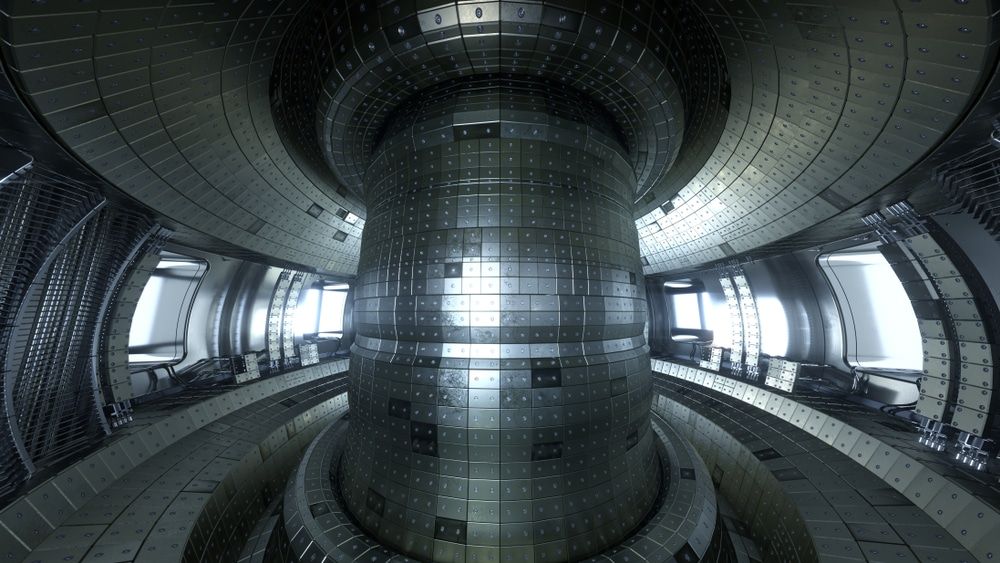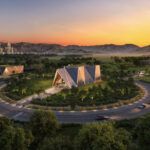Questions for the US Nuclear Regulatory Commission confirmation hearings
By William J. Kinsella | June 2, 2017

Throughout the first four months of the Trump presidency, a troubling scenario seemed possible at the US Nuclear Regulatory Commission (NRC)—the organization entrusted with ensuring the safety of the nation’s civilian nuclear energy infrastructure. Two of the commission’s five seats were vacant when the new administration took over, and one commissioner’s term was set to expire on June 30. Much of the commission’s work requires a three-member quorum, so the prospect of disruption loomed large.
The administration addressed the situation on May 22 by nominating Chairman Kristine Svinicki for reappointment and naming two additional nominees to fill the vacant seats. The nominees now face a confirmation process involving the Senate’s Environment and Public Works Committee, followed by a full Senate vote.
What questions should senators ask the NRC nominees? All three are nuclear insiders, familiar with the commission’s mission and broad scope of activities as well as current and emerging challenges facing the agency. If the senators engage directly and substantively with the nominees about these matters, there can be an opportunity to explore the underlying philosophies and commitments they would bring to their work as commissioners.
Five broad principles of good regulation, summarized on the NRC’s website, provide some guidance, but the conversation needs to go much deeper. There are questions all three nominees should answer, and questions specific to each nominee.
Regulatory independence and transparency. Considering the entanglements surrounding so many of the administration’s appointments to date, any potential financial and political ties to the nuclear industry are an obvious area of concern. Senators should question each nominee directly about such possibilities.
More subtle institutional influences can be harder to evaluate. The commission’s purpose is to ensure the safety of nuclear technologies, rather than to promote them or protect their economic viability. But faced with competition from renewable energy and cheap natural gas, the US nuclear industry is struggling to survive. The industry claims that “regulatory burdens” are part of the problem, and has been pushing aggressively for regulatory changes.
The industry’s advocacy and lobbying group, the Nuclear Energy Institute, has praised all three nominees, and their backgrounds suggest considerable sympathy with the industry’s position. Critical public interest groups regard at least two of them as “nuclear industry picks.”
In the current anti-regulatory political climate, senators will have a range of opinions about how to strike the right regulatory balance. The confirmation process should expose where each nominee stands in this regard, and may reveal where some senators stand as well. All the nominees will likely assert their unequivocal commitment to safety, but in practice, nuclear safety is always a negotiated process, accomplished by addressing particular problems and challenges.
Challenging times for nuclear safety. I have written elsewhere about some of the pressing challenges facing the NRC. Nuclear plant safety issues include the industry’s increasing reliance on aging facilities, efforts to extend reactor lifetimes to as much as 80 years, oversee decades-long plant decommissioning projects, and prepare for the possibility of regulating a proposed new generation of reactors.
Nuclear waste issues are perennially contentious, and have been flash points for conflict surrounding a number of previous NRC appointments. After years on hold, the Yucca Mountain nuclear waste repository project is back on the political agenda. Although the project remains controversial, and key steps in the licensing decision process remain to be completed, all three nominees appear to support it.
Senators should ask the nominees whether they see themselves as neutral referees in the Yucca Mountain process, or as advocates for moving the project forward. Related issues involve the storage and transportation of nuclear wastes, proposed new interim storage sites, and managing the wastes accumulating at operating and closed nuclear power plants across the nation.
Administrative, budgetary, operational, and legislative issues intersect with these challenges. The NRC has already acted to address industry concerns about efficiency and cost reduction, adopting recommendations from its Project Aim self-study to restructure a number of activities. But ironically, the streamlining accomplished by the agency to date may make it more difficult to absorb further cuts of approximately five percent proposed in the 2018 federal budget. (This number may not sound large at first glance, but it comes on the heels of years of successive cuts.) Legislative initiatives seeking to roll back regulations may further affect the agency’s work. Another measure, the Nuclear Energy Innovation and Modernization Act—sponsored by the chair and other members of the Senate’s Environment and Public Works Committee—is not so much about rolling back regulations as restructuring them so that NRC resources would be directed more toward the support of new reactor designs and changing the way that the agency collects fees from its licensees.
Two more broad issues deserve mention. Despite the Commission’s efforts to promote a strong safety culture, critics continue to raise questions about trust, accountability, and whistleblower protection at the agency and across the nuclear industry. Finally, cybersecurity has been a growing concern for some time, and is sure to remain one in the escalating threat environment.
Meet the nominees. Senators may not be able to address all of these issues with each nominee, so they might wish to focus their questions based on the nominees’ individual backgrounds. Commissioner Svinicki, who was moved to the position of chairman just three days after the presidential inauguration, has been an NRC member since 2008, so in principle, her statements and voting record provide a basis for dialog. There is a catch, however: Compared to many other commissioners, she has been particularly cautious about making her views public.
Archived speeches and testimony are readily available for the other two sitting commissioners through spring 2017, next to their official biographies on the NRC website. The corresponding link for Chairman Svinicki has not been updated since April 2012. More recent materials are available elsewhere, but more difficult to find. Many of Svinicki’s public speeches begin with extended introductory remarks and physics jokes (“No charge for you, said the bartender to the neutron”) that make her popular with industry audiences but defer consideration of more substantive issues.
These examples may seem minor, but they illustrate a broader pattern of avoiding public engagement on potentially controversial topics. This would be a concern in relation to any commissioner, but is especially important in the case of the chairman, who serves (working through staff) as the commission’s sole official spokesperson. Senators should make a special effort to explore Chairman Svinicki’s commitment to open, transparent, and inclusive public communication, and to maintaining the NRC’s record of making resource materials readily available.
Annie Caputo presents a different set of questions. She is currently a senior policy advisor reporting to Republican Senator John Barrasso, who chairs the Environment and Public Works Committee—the same committee that oversees the NRC and will conduct the confirmation hearings. She was considered for nomination as a commission member in 2016, when she served in the same role with Republican Senator James Inhofe as committee chair, although that process was never completed.
At that time, Senator Inhofe applauded Caputo’s credentials but expressed discomfort with the prospect of moving a committee staffer directly to a position in an agency the committee oversees. Senator Barrasso has expressed no such concern. Regulatory independence must encompass not only independence from industry influence, but also from political influence, so senators should assess Caputo’s situation carefully. Her work from 1998 through 2005 as a congressional affairs manager for Exelon, now the nation’s largest nuclear power plant operator, may raise additional questions.
Nominee David Wright is another nuclear insider, with experience at the state regulatory level where economic rather than safety issues are the primary focus. As a member and chairman of the South Carolina Public Service Commission from 2004 through 2013, he worked in one of the most nuclear-friendly US states, where critics say nuclear construction projects have been underwritten by passing costs and risks on to electricity consumers.
In 2014, Wright joined the leadership council of Nuclear Matters, a self-described informational and policy advocacy organization. Watchdog groups regard Nuclear Matters as a nuclear industry promotional campaign, and the organization lists at least 18 nuclear power plant operators, equipment vendors, and nuclear fuel providers among its supporters. Senators should ask Wright whether he plans to continue working in an advocacy role, and if not, how he plans to make the move to the role of an independent regulator. Considering these nominees together, it’s easy to see how critics might view them as a nuclear industry dream team: A chairman with an uncertain commitment to transparency, a direct link to legislators allied with the industry, and a confirmed industry advocate.
About the confirmation process. The timing of these nominations, so close to the June 30 expiration of one member’s appointment, might promote a false sense of urgency to complete the confirmation process. That would be an unnecessary development, and one that critics might suspect to have been intentional. Only one appointment or reappointment is needed to preserve the NRC’s quorum, and these safety-critical positions demand close scrutiny.
Senators and their staff members should be given adequate time to research the nominees carefully and hear the views of a wide range of stakeholders regarding their fitness for service. If necessary, senators should consider the possibility of delaying the confirmation hearings for one or more nominees. The hearing schedule should also allow a thorough and substantive conversation with each nominee, rather than with the three as a group, getting beyond the formalistic exchanges that sometimes characterize such proceedings. But rather than take their time, the committee instead chose to hold confirmation hearings on June 7 (now postponed to June 13 at 10:00am), and bundle the hearings for all three nominees into a single, two-hour session—along with squeezing in consideration of a person nominated for a position in the EPA at that same hearing. In other words, an average of 30 minutes per nominee, for some extremely important positions that ought to require real deliberation.
Despite the whirlwind of congressional activity now underway, the schedule should also seek to minimize competing commitments on the part of the committee members, other senators, and staff. Issues of nuclear safety are consequential, and the current nominations represent three-fifths of a body that will make critical decisions for years to come.
Nuclear politics often play out as partisan, and the current situation has more than the usual potential to do so. No more than three NRC members can be from the same political party, and their staggered five-year terms typically produce single or paired appointments. However, in this case all three nominees are registered Republicans.
Nevertheless, this should not be a partisan conversation. Any senator whose state is host to a nuclear power plant, or nuclear fuel fabrication facility, or current or prospective nuclear waste site—or is downwind or downriver from any of these—has a direct interest in protecting nuclear safety. The national interest, and beyond, is at stake as well: The consequences of nuclear failures can transcend both geographic and generational boundaries.
A final, or perhaps the first, question to ask the NRC nominees might be: If you were to vote against a proposed nuclear safety measure, and later a disaster took place that could have been prevented by that measure, how would you regard your personal responsibility?
Together, we make the world safer.
The Bulletin elevates expert voices above the noise. But as an independent nonprofit organization, our operations depend on the support of readers like you. Help us continue to deliver quality journalism that holds leaders accountable. Your support of our work at any level is important. In return, we promise our coverage will be understandable, influential, vigilant, solution-oriented, and fair-minded. Together we can make a difference.
Topics: Analysis, Nuclear Energy














